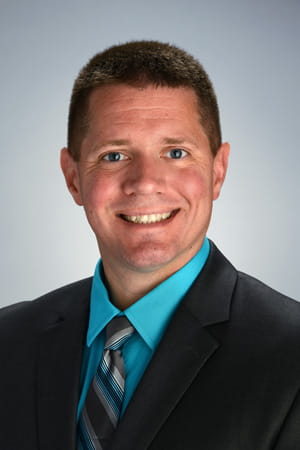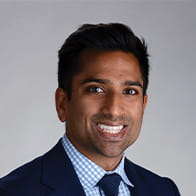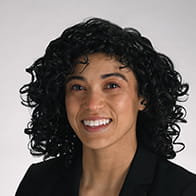
Hypertrophic Cardiomyopathy (HCM)
Hypertrophic cardiomyopathy, or HCM, is a type of heart disease that causes hardening or thickening of the heart chamber walls. This makes it difficult for the heart to pump blood. HCM is a genetic condition that can result in severe complications, such as advanced heart failure.
The University of Kansas Health System is a nationally recognized center of excellence for HCM and offers all of today's leading-edge prevention, diagnosis, treatment and research for HCM. Our hospital is the only hospital in the region to receive this recognition.
What is hypertrophic cardiomyopathy?
Hypertrophic cardiomyopathy causes an abnormal thickening of the heart muscle. This can keep the heart from functioning normally. It also can disrupt the electrical currents in the heart. HCM is the most common inherited heart condition, affecting about 1 in 500 people.
Most people with HCM live long and healthy lives. But HCM is the leading cause of sudden cardiac arrest in young athletes. It also can cause chest pain and abnormal heart rhythm.
We offer a variety of appointment types. Learn more or call 913-588-1227 to schedule now.
Hypertrophic cardiomyopathy symptoms and risks
This disease is autosomal dominant. That means it requires only 1 gene from 1 parent to pass to the child. If a parent has the abnormal gene, each child has a 50% chance of inheriting the disease. If 1 of your parents or siblings has HCM, you should be screened. In addition to those with a family history of HCM, those who have or have experienced any of the following conditions may also benefit from screening:
- Chest pain
- Decreased exercise tolerance
- Fainting (syncope) or lightheadedness – especially during or shortly after exercise
- Rapid or irregular heart rhythms
- Shortness of breath
- Sudden cardiac arrest
Hypertrophic cardiomyopathy diagnosis and screening
The University of Kansas Health System offers the most current imaging tests for HCM. Which tests your doctor chooses may depend on your symptoms and their timing. Some of the standard tests to diagnose HCM are:
- Cardiac MRI
- Echocardiogram
- Electrocardiogram
- Holter monitor
- Stress echocardiogram
Your cardiologist may order tests to determine whether your symptoms are caused by HCM. Once a diagnosis of hypertrophic cardiomyopathy is made, your care team will develop a treatment plan that may include medications, heart surgery or a minimally invasive procedure. HCM can progress over time, so be sure to continue with regular screenings.
- Every 12 months for those aged 12-23 (growth spurts may accelerate the progress of HCM)
- Every 5 years after age 23

Know your risk
Hypertrophic cardiomyopathy treatment
HCM can be treated a number of ways. Your HCM treatment will be determined by your doctor and care team.
Why choose us for hypertrophic cardiomyopathy care
- Our doctors have extensive training in HCM diagnosis and treatment. They have a wealth of experience from years of providing care for hundreds of patients and families.
- Our experienced nurse clinicians also are knowledgeable about HCM and adult congenital heart disease. They understand your concerns and are happy to answer your questions.
- The University of Kansas Health System is a nationally recognized center of excellence for HCM. Only programs with state-of-the-art prevention, diagnosis, treatment and research are recognized as centers of excellence. Our hospital is the only hospital in the region to receive this recognition.
- Our hospital is a member of the Hypertrophic Cardiomyopathy Association (HCMA), which is dedicated to providing support and education about HCM and its ongoing research and development.
- What sets the program apart is the strength of multiple heart specialties coming together. Most programs include only an electrophysiologist and a surgeon. We include an interventional cardiologist an echocardiographer and designates nurses, too. Your diagnosis and treatment plan will benefit from the perspective and coordination of 4 specialties plus the availability of all testing equipment necessary to provide your care.
Our hypertrophic cardiomyopathy team

Jared A Kvapil, MD
Cardiology
Board certifications: Internal Medicine, Cardiovascular Disease
Fellowship: Cardiovascular Diseases

Hirak M Shah, MD
Cardiology, Heart Failure and Transplantation Cardiology
Board Certifications: Internal Medicine, Cardiovascular Disease
Fellowships: Cardiovascular Diseases, Advanced Heart Failure and Transplant Cardiology

Paola C Roldan, MD
Heart Failure and Transplantation Cardiology
Board certifications: Cardiovascular Disease, Internal Medicine
Fellowships: Advanced Heart Failure and Transplant Cardiology, Cardiology




